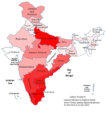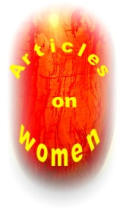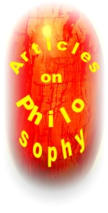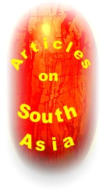Anger as Iran bans women from universities






‘Knowledge is power’





WEB PAGES
OUR OFFERING
UPLOADED ITEMS
OUR EMAIL
kri200@womenspowerbook.org
QUESTION
Raise the vol to listen to the
lady airing awe @ the SINGLE author encyclopedia
World’s
encyclopedic
knowledge
compacted
in
your
hand
By Robert Tait
3:17PM BST 20 Aug 2012
In a move that has prompted a demand for a UN investigation by Iran's most celebrated
human rights campaigner, the Nobel laureate Shirin Ebadi, 36 universities have announced
that 77 BA and BSc courses in the coming academic year will be "single gender" and
effectively exclusive to men.
It follows years in which Iranian women students have outperformed men, a trend at odds
with the traditional male-dominated outlook of the country's religious leaders. Women
outnumbered men by three to two in passing this year's university entrance exam.
Senior clerics in Iran's theocratic regime have become concerned about the social side-
effects of rising educational standards among women, including declining birth and marriage
rates.
Under the new policy, women undergraduates will be excluded from a broad range of
studies in some of the country's leading institutions, including English literature, English
translation, hotel management, archaeology, nuclear physics, computer science, electrical
engineering, industrial engineering and business management.
The Oil Industry University, which has several campuses across the country, says it will no
longer accept female students at all, citing a lack of employer demand. Isfahan University
provided a similar rationale for excluding women from its mining engineering degree,
claiming 98% of female graduates ended up jobless.
Writing to Ban Ki Moon, the UN secretary general, and Navi Pillay, the high commissioner
for human rights, Mrs Ebadi, a human rights lawyer exiled in the UK, said the real agenda
was to reduce the proportion of female students to below 50% – from around 65% at
present – thereby weakening the Iranian feminist movement in its campaign against
discriminatory Islamic laws.
"[It] is part of the recent policy of the Islamic Republic, which tries to return women to the
private domain inside the home as it cannot tolerate their passionate presence in the public
arena," says the letter, which was also sent to Ahmad Shaheed, the UN's special rapporteur
for human rights in Iran. "The aim is that women will give up their opposition and demands
for their own rights."
The new policy has also been criticised by Iranian parliamentarians, who summoned the
deputy science and higher education minister to explain.
However, the science and higher education minister, Kamran Daneshjoo, dismissed the
controversy, saying that 90% of degrees remain open to both sexes and that single-gender
courses were needed to create "balance".
Iran has highest ratio of female to male undergraduates in the world, according to UNESCO.
Female students have become prominent in traditionally male-dominated courses like
applied physics and some engineering disciplines.
You might also like:
British Parliament's Decision Not To Attack Syria
Rape used as a weapon of war in Africa
THE REAL WAR IN SOUTH ASIA



Empowering Book Newsletter






WOMEN’S POWER: ITS PAST, ITS PRESENT, ITS FUTURE: FEMOCRACY


















